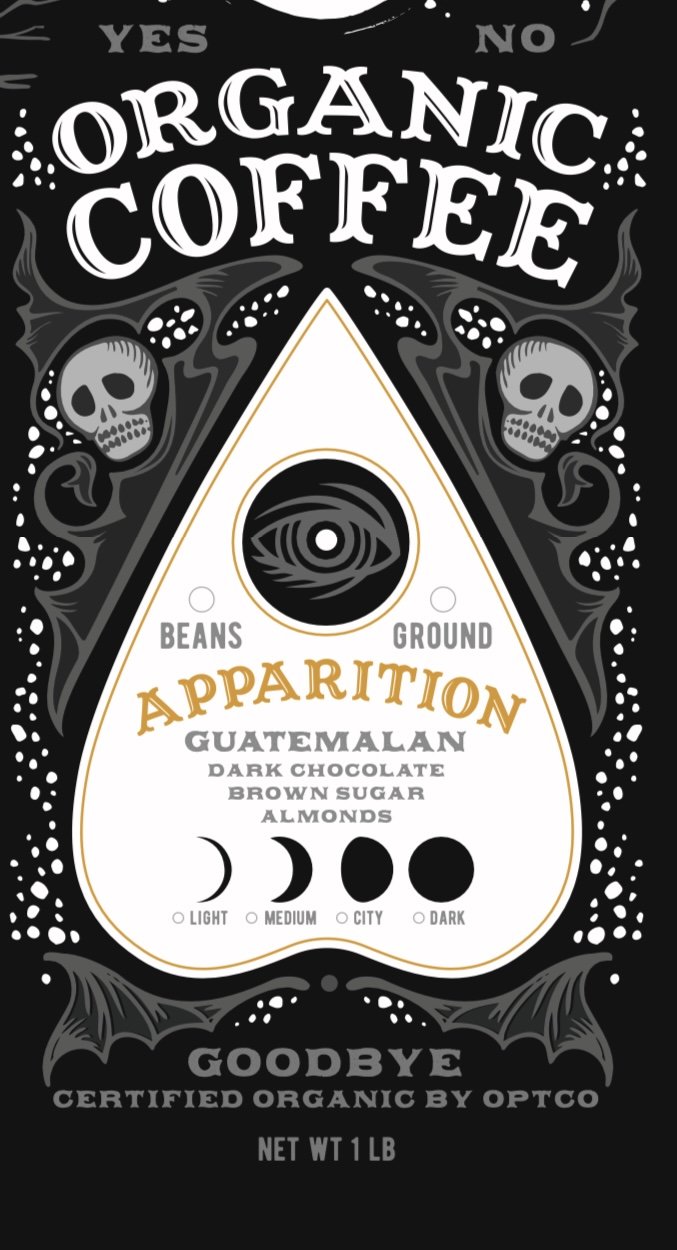Sinister Coffee and Creamery
Apparition Coffee
Roaster Location:  Portland, Oregon
Portland, Oregon
 Portland, Oregon
Portland, Oregon
4.00(1)
Shop directly with this roaster
To maintain editorial neutrality, Coffee Roast does not earn any commissions directly from roasters. You may see ads for coffee brands via Google Ads. We do not control content. Please support roasters by directly buying/subscribing from their websites and shops. To learn more, please review our Advertising Policy.
Bean Source Country:
Guatemala
Organic
Guatemalan full body city roast coffee, smooth and balanced acidity!
Show moreReviews(1)
4.00(1)
1
rating
Ratings here are based on aggregated user reviews of individual roasts
from Sinister Coffee and Creamery.
5 star
0%
4 star
100%
3 star
0%
2 star
0%
1 star
0%
Latest Reviews and Tasting Notes
-
Morgan McErlean
5 roasts rated, avg score of 4.30
4.00 - Average
Smooth, full body coffee, slightly on the sweeter side. The roast my local coffee shop, Hobbs, uses!
More Details
Bean Source Country:
Guatemala
Guatemala is one of the main coffee-producing countries in Central America. Its volcanic soil and altitude make it ideal for producing quality arabica.
Coffee in Guatemala is grown in the high-altitude regions of the country. The country is known for producing high-quality Arabica beans, known for their well-balanced, rich, and complex flavors with notes of chocolate, fruit, and nuts with great acidity. The volcanic soil and favorable climate conditions contribute to the unique taste profile of Guatemalan coffee. The coffee industry is a significant part of the country's economy, with small-scale farmers and cooperatives being the primary producers. Guatemala represents around 2% of the world's coffee production, but due to its reputation for high quality, has an outsized impact in specialty roasts.
Organic
Organic coffee is produced without synthetic chemicals, such as pesticides, herbicides, and artificial fertilizers. Instead, organic coffee farmers rely on natural and sustainable agricultural practices like crop rotation, composting, and biological pest control. To be labeled as organic, coffee must meet strict regulations and certification criteria set by governing bodies, such as the United States Department of Agriculture (USDA) or the European Union (EU). Organic coffee not only supports environmental sustainability but may also offer health benefits, as it contains fewer chemical residues than conventionally grown coffee.
Similar Roasts
| Name | Roaster | Roast Level | Bean Source |
|---|---|---|---|
|
4.80(5) |
49th Parallel Coffee Roasters | Light | Guatemala |
| Nomad Coffee | Light Medium | Guatemala | |
|
5.00(2) |
Rogue Wave Coffee | Light | Guatemala |
|
4.50(4) |
Downeast Coffee Roasters | Light Medium | Guatemala |
|
4.75(2) |
Drift Coffee Roasters | Light | Guatemala |
|
4.75(2) |
Have Fun. Coffee | Light | Guatemala |
|
4.75(2) |
Black Fox Coffee | Light | Guatemala |
|
4.75(2) |
Moxie Coffee Co. | Light | Guatemala |
|
4.75(2) |
JBC Coffee Roasters | Light | Guatemala |
|
5.00(1) |
Speckled Ax Wood Roasted Coffee | - | Guatemala |

